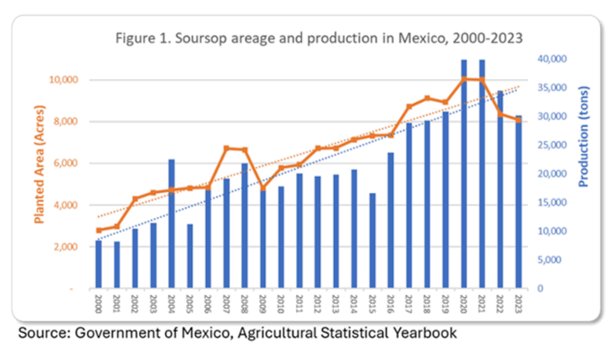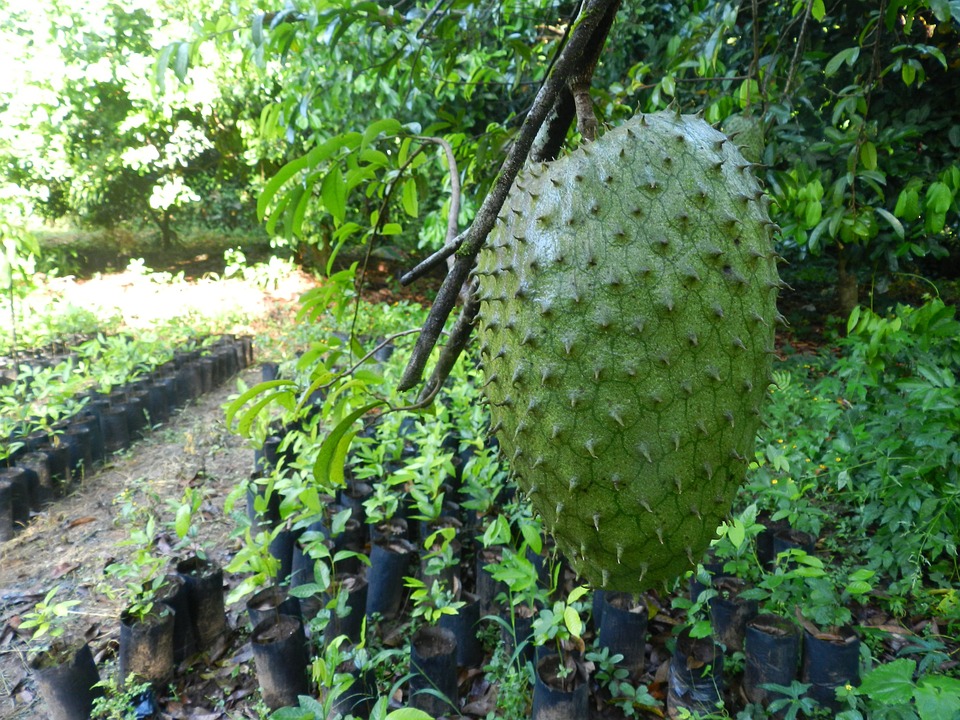The Department of Agriculture (USDA) allowed soursop exports from Mexico to the United States by the end of 2024.
Soursop production in Mexico has grown significantly in recent decades. In 2023, Mexican producers reached a volume of 30,121 tons grown on 8,080 acres. This represents a 262% increase in production and a 190% increase in planted area compared to 2000, when 8,321 tons were produced on 2,792 acres.
Soursop exports from Mexico
Soursop is an edible fruit that is widely grown in various regions of the world. It is especially prized for its commercial value in the production of juices, candies, and sorbets. In addition, the roots of this plant are used in traditional medicine due to its antiparasitic and pesticidal properties.

Despite its high nutritional value, soursop is highly perishable, which generates a considerable level of waste.
According to Mexico’s National Plant Protection Organization (NPPO), if exports were authorized, an estimated 200 metric tons of fresh soursop would initially be shipped to the continental United States market each year.
Between 2017 and 2023, the United States imported an annual average of 256 metric tons of fresh soursop from Grenada. These imports had an average value of $1.2 million in customs terms and $1.6 million in CIF (cost, insurance, and freight) value.
Customs value is generally defined as the price paid for a good when sold for export to the United States, excluding import duties, freight, insurance, and other charges applied in the country of destination.
Requirements
The U.S. Animal and Plant Health Inspection Service (APHIS) and the Mexican National Plant Protection Organization (NPPO) must collaborate to create an operational work plan. This plan should detail the activities and responsibilities that the NPPO will assume to meet the requirements of the irradiation program.
APHIS will work with the NPPO in the implementation, monitoring and supervision of these activities, ensuring their proper execution.
According to the Secretariat of Agriculture and Rural Development (Sader), accessing this market will enable producers to increase the profitability of their crops. It will also help improve their quality of life and promote the sustainability of production, as they will be able to obtain better prices for their products.

